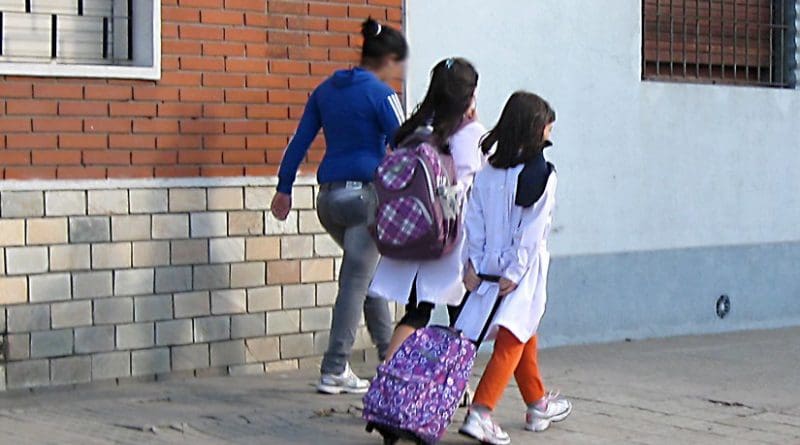Global Curriculum Ideas For Developing Nations Students – OpEd
For many people living in developed countries, education is a given. Parents enroll their children in school as soon as they are old enough, and the children are essentially guaranteed — or even required — enrollment for over 10 years. Often, people in such countries don’t understand what a privilege it is to even have the opportunity to go to school, but for children in developing nations, education is rarely guaranteed and comes with unique challenges.
Like any country in the world, these countries have populations of people that are better off and people who struggle more through life. Each individual country has their own unique demographics and conditions, but they typically have barriers and challenges facing education. This makes it essential for the students who live there to have access to optimized education to help them succeed in life.
Challenges That Students Face
Lack of access to education is a hurdle that only some have the opportunity to overcome. Paying for books and school supplies can be a financial strain for families in impoverished areas who may be struggling simply to feed their family. Costs can stop children from going to school and can even require that children start working from a young age. Similarly, conditions in such countries present potential students with other challenges as well.
Medical Needs
Oftentimes, poverty-stricken locations tend to have medically underserved populations. When families don’t have the means to provide medical care to themselves or their children, it can cause the students to miss more school than they would otherwise when they get sick.
Special Needs Students
In areas where it is difficult to get medical treatment for simple ailments, like colds and flus, it is sometimes impossible to get specialized medical care for those with genetic disorders such as Down syndrome and autism. Likewise, awareness and treatment for mental illness like depression and anxiety may not be available.
Equality
Oftentimes in developing nations, the obstacles between children and education greatly increase with female children. In some cases, they are expected to marry young, and at that time are pulled out of school — if they have the chance to ever go at all.
Curriculum Needs
The particular challenges that students in developing nations face means that the educational needs in those countries are different than other countries. The needs for these students may range from basic skills to specialized education to help them improve and thrive in their home countries.
Improving Literacy
In countries with high poverty rates, basic skills like reading and writing get overlooked. Focusing on improving literacy rates is one viable way to empower people and alleviate poverty. Basic reading and writing skills are essential, as are other forms of literacy, such as functional literacy, legal literacy, and computer literacy. Dr. Mohamed Chtatou emphasizes the importance of improving all literacy rates:
[Illiteracy] constitutes a handicap that paralyses capacities and locks energies in a time where society needs the active involvement of its individuals and their full potentials to face up to the challenges, the requirements of competitiveness, the logic of globalization, as well as the rapid pace of scientific progress, technological breakthroughs and information revolution.
Technology
Education in technology is incredibly important around the world. The world is facing a technological revolution, developing with artificial intelligence, the internet of things, and more. However, students in developing nations can benefit from technology in simpler ways by learning how to enhance their countries, like by providing better energy sources. Education in these areas can help students go on to achieve a better standard of living in their countries.
Representation Is Key
It’s important that students see themselves in the books and stories they read. Starting at a young age, exposing children to books that represent their own culture is vital. Reading about people they can relate to by their looks and languages, and seeing them in successful situations can be the inspiration and empowerment that pushes them to lead better lives.
College Opportunities for International Students
When not even primary and secondary school are guaranteed, making it to college is an even harder goal to reach — but global education is an international responsibility. With the rise of globalization comes nuances of competition; however, it’s important for colleges and universities around the world to keep these needs in mind and do what they can to help.
Online Classes and Accessibility
Making higher education accessible to those all over this world may seem like a difficult task to accomplish, and rightly so. However, colleges and universities in developed countries can take steps to become more globally accessible. Online programs in particular are seeing “record enrollment numbers” as well as “higher populations of international students.” One such top-ranked university for international students and global learners, Arizona State, attributes a large part of that to “opening its doors to anyone anywhere,” and offering degree programs online.
Scholarships and Assistance
While getting accepted into a university or college is a step that not many are lucky enough to reach, affording a tuition that costs tens of thousands of dollars can make it impossible. Scholarships, grants, and other financial assistance made more widely available specifically for students from developing nations can make it possible for them to attend higher education classes.
Taking into account the specific needs for each individual student is necessary when evaluating global curriculum needs. By not only including them but welcoming and helping them into the realm of global education, countries around the world can help students from any and every country achieve educational success.
*Avery T. Phillips is a freelance human being with too much to say. She loves nature and examining human interactions with the world. Comment or tweet her @a_taylorian with any questions or suggestions.

